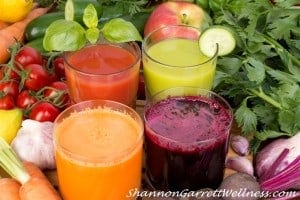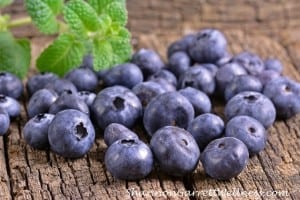
Why are vitamins important?
Every cell in the body relies on a sufficient supply of thyroid hormone AND vitamins to do its metabolic work.
In this way, vitamins perform many functions. Among other things, they promote blood formation and healthy skin, hair and vision; they help to maintain nerves and muscles; and they aid in the release of energy from foods. Recent research suggests that some vitamins can even help prevent certain disorders, such as cancer, cataracts, arthritis and heart disease.
Most vitamins must be obtained from foods or supplements because the body cannot produce them.
Vitamin deficiencies are common in many groups of people: people with Hashimoto’s or other autoimmune conditions including Celiac disease, leaky gut syndrome, routine dieters including the beloved Paleo and Autoimmune Paleo lifestyles, pregnant or nursing women; the elderly; people under stress; and those taking medications, such as cortisone or antibiotics. Plus, cigarettes, coffee, alcohol and birth control pills all rob the body of vitamins.
The first signs of vitamin deficiency are fatigue, irritability and anxiety.
Over time, the immune system will weaken.
Preserving Vitamins
Over-cooking, light, air and long storage diminish the vitamin content of fruits and veggies. So we need to be mindful of how we handle produce.
To minimize loss:
- Choose frozen fruits & vegetables over canned; they’re more nutritious.
- Buy locally grown organic produce
- Wash and cut produce just before serving; don’t buy pre-cut fruits and vegetables.
- Select colorful organic fruit (a rainbow of colors) and eat the skins of pears and apples.
- Steam fresh vegetables rather than boiling them.
What You Can Do
There is no substitute for a healthy diet of fruits and vegetables. Vitamin deficiency usually occurs after many weeks or months of intake below recommended levels, or the result of compromised absorption, e.g. Celiac disease, etc.
Fat-soluble vitamins
- Fat-soluble vitamins are stored in the body for use as needed. To increase their absorption, cook and consume with olive or coconut oil.
- Vitamin A: Healthy skin, vision, plays a significant role in immune system function, thyroid & heart health, along with riboflavin it supports the protective mucus membrane in the gastrointestinal tract.
- Vitamin D: Is actually technically a hormone. Supports bone formation, essential for a healthy immune system & thyroid function, fights infections including the flu and colds, as it regulates the expression of genes that influence the immune system to attack & destroy bacteria & viruses. eople with Celiac, Crohn’s disease or Cystic fibrosis have a hard time absorbing vitamin D from supplement and food.
- Vitamin E: Cellular protection, supports eye health and helps to prevent cataracts, protects against toxins, air pollution, Alzheimer’s disease, neurological diseases & diabetes.
- Vitamin K: Especially K2: Blood clotting, bone health, brain, antioxidant, skeletal muscle metabolism, protects the prostate and a deficiency is common in a variety of heart diseases(consult your doctor if on Coumadin[warfarin] or other anticoagulant therapy).
Water-soluble vitamins:
The following water-soluble vitamins are not stored in the body. Therefore, it is essential to meet daily recommendations.
- Vitamin B6: Strengthens and supports nerve function, muscle tissue, heart, digestive & immune systems, a deficiency is common in carpal tunnel syndrome. B6 is also a natural diuretic.
- Vitamin B12: Formation of red blood cells, helps make DNA, and is necessary to a healthy functioning brain & nervous system. A deficiency in B12 can result in Pernicious Anemia (PA).
- Vitamin C: Supports the immune system, facilitates would healing, cell protection, utilized by the adrenal cortex, forms an important protein used to make muscles, tendons, ligaments & skin, repairs & maintains cartilage, bones, collagen, & teeth
- Folic acid: Cell formation; fights heart disease & birth defects (caution if you have the MTHFR genetic mutation)
- Niacin: Also known as vitamin B3, plays a role in energy metabolism, brain function & prevention of chronic disease such as heart disease.
- Pantothenic acid: Also known as vitamin B5′ supports a healthy central nervous system, adrenal glands, helps prevent graying of hair, hair follicle health, alleviates stress & anxiety, hair loss, asthma, allergies, respiratory disorders, boosts immunity, supports healthy skin, helps manage diabetes.
- Riboflavin: Also known as vitamin B2, fights fatigue and along with vitamin A, maintains & supports the protective mucus membrane in the GI tract. It is crucial for breaking down food and absorbing other nutrients.
- Thiamine: Is vitamin B1; Strengthens muscles, heart, & nerves, maintains muscle tone along the digestive tract, promotes health of skin, hair, eyes, & mouth, and improves cardiovascular function. It helps to convert carbs into glucose which in turn is used for carrying out various body functions. It is also required for the breakdown of fats and proteins. Thiamine is often referred to as the “anti stress” vitamin because it improves the body’s ability to cope with stress.
Cigarette smoke destroys vitamin C in the body, so smokers need more every day. Excessive coffee drinking can lead to vitamin deficiencies.
~Vitamin-Rich Cocktails ~

- To boost the immune system: 1 carrot, ½ lemon, 1 stalk celery, ½ red beet, 1 handful of spinach
- To guard against cancer: 3 carrots, ½ apple, 1 handful broccoli florets, 1/2 cup frozen berries
- To renew cells and fight aging processes: 3 carrots, 1 handful of spinach, 1 orange, 1 tsp. olive oil
- To improve vision: 1 apple, 1 kiwifruit, 1 handful of Mâche, 1 tsp. olive oil
~ Antioxidant Power ~
Beta-carotene (found in dark green vegetables and orange fruits and vegetables), vitamin C (found in citrus fruits and broccoli), and vitamin E (found in nuts, vegetable oils and dark leafy greens) are all natural antioxidants. These substances help neutralize free radicals, which in turn help prevent accelerated aging and fight disease, such as cancer and heart disease.
Berries, blueberries, blackberries, raspberries, and wolfberries are particularly rich in antioxidants containing ellagic acid & cancer-fighting catechins & anthocyanidins.
https://twitter.com/AutoimmuneRN/status/482955170805207040







